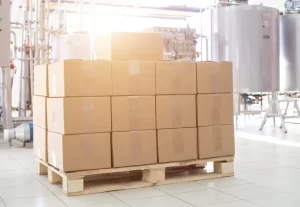How Do Pallets Play a Critical Role in the Retail Industry?

In the vast and intricate world of retail logistics, particularly among "big box" retailers like Costco, Walmart, Sam’s Club, and Lowe’s, pallets serve as the unsung heroes. These ubiquitous platforms might appear mundane to outsiders, yet they form the backbone of the supply chain, enabling the seamless transportation and storage of goods.
What Are the Origins and Impact of Wooden Pallets?
Wooden pallets, as we know them today, have been evolving since the early 20th century. Initially marked by a U.S. patent in 1924, they gained prominence in the late 1930s alongside advancements in forklift technology. However, beyond simply purchasing pallets, logistical considerations multiply—companies must decide between wood, aluminum, or plastic, each material bearing unique pros and cons.
For long-term storage or extensive shipment durations, these pallets might seem like a transient expenditure. However, relying solely on owned pallets poses risks of loss as they traverse the supply chain. The complexity further intensifies with stringent pallet specifications imposed by the receiving entities.
How Do Sharing and Reusing Transform Pallet Use?
This conundrum birthed the concept of pallet pooling, spearheaded by companies like CHEP in the late 1980s. By championing a circular 'share and reuse' model, CHEP revolutionized pallet management. Instead of buying pallets, businesses rent them, thus ensuring quality without the hassles of ownership. This model minimizes the ecological footprint by repeatedly using the same pallet.
This system primarily benefits big box retailers who pay rental fees for pallets, which then return to the inventory pool. However, diversity in retailer requirements can lead to standardization challenges and logistics inefficiencies for manufacturers.
Why Is There a Shift to iGPS, PECO, and CHEP Block Pallets?
In North America, specific pallets are mandated by major retailers. For instance, Costco exclusively accepts certain types from iGPS, PECO, and CHEP, and has developed its own block pallet specification when alternatives are unavailable. Recognizable by their block design, these heavy-duty pallets exemplify durability and adherence to performance specifications.
The complexity arises for manufacturers supplying goods to various retailers—some with rigid demands, others more flexible. Navigating this terrain requires adept pallet planning.
When Should Pallets Be Utilized and How Do You Choose the Right Ones?
Manufacturers often face the dilemma of choosing the appropriate pallet type to fulfill each retailer's requirements. This ranges from rental pallets for compliant clients to separate solutions for others without explicit guidelines. Such decisions directly influence supply chain efficacy and cost-efficiency.
Opting for a strategic approach—renting, buying, or mixing methods—can significantly impact operational productivity. For certain retailers, non-compliance with specified pallet requirements could result in penalties or outright rejection of the shipment.
What Is the Future of Wood Pallets Compared to Plastic Alternatives?
Traditionally, wooden pallets ruled the supply chain predominantly. Yet, the disadvantages—including frequent handling issues and splinter generation—catalyze a gradual shift towards plastic pallets. This transition signifies a broader industry trend towards sustainability and operational efficiency.
Nonetheless, not all challenges are resolved. Instances persist, where rental pallets linger unused, failing to re-enter the active pool. These situations underscore the necessity for precise supply chain management and inventory control.
How Do Pallet Innovations Enhance Operational Efficiency?
Innovative solutions like pallet inverters, dispensers, and changers have emerged as game-changers in logistical operations. By optimizing pallet handling, these technologies pave the way for safer, faster, and more efficient processes. Ultimately, they mitigate the risk of workplace injuries from manual load management.
Such advancements highlight the critical role of machinery in harmonizing logistical operations with modern demands, ensuring compliance while maximizing productivity.
What Can You Do to Make Informed Decisions?
In an ever-evolving supply chain landscape, strategic discussion and consultation can provide valuable insights. Understanding the nuances of pallet management and choosing the right equipment tailored to specific requirements could be pivotal. This approach not only simplifies logistics but also promotes workplace safety.
By harnessing tailored logistical models, manufacturers can adeptly navigate the complexities of retailer requirements, thereby optimizing their supply chain strategies and fostering sustainable growth.

Are There Similar Innovations Revolutionizing the Industry?
Similar transformative projects in logistics focus on enhanced fidelity and reduced environmental impact. These encompass automated storage solutions, IoT-enabled tracking devices for real-time monitoring, and alternative sustainable packing materials.
Each project shares a commonality: the drive to improve supply chain dynamics, marry efficiency with sustainability, and delivering tangible benefits across the logistical spectrum. These innovations reinforce the cyclical ethos of reuse, ultimately benefiting both industry and ecology.




